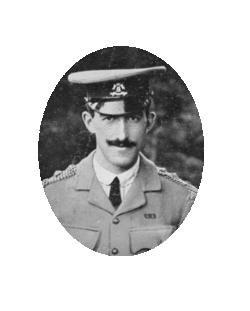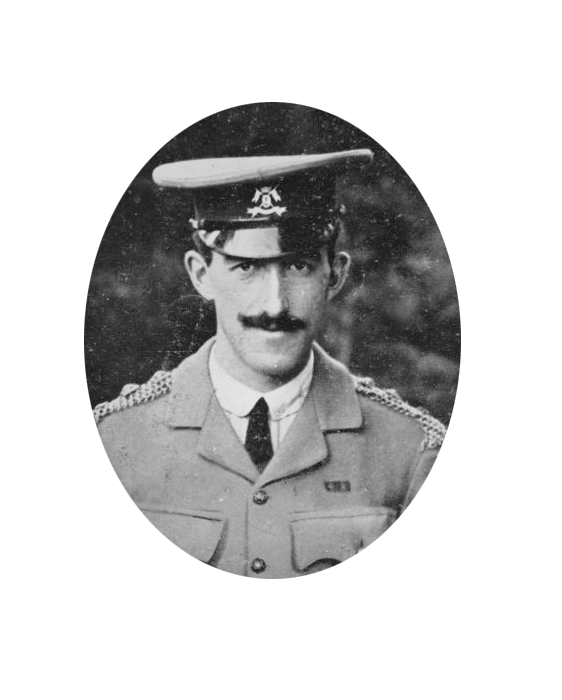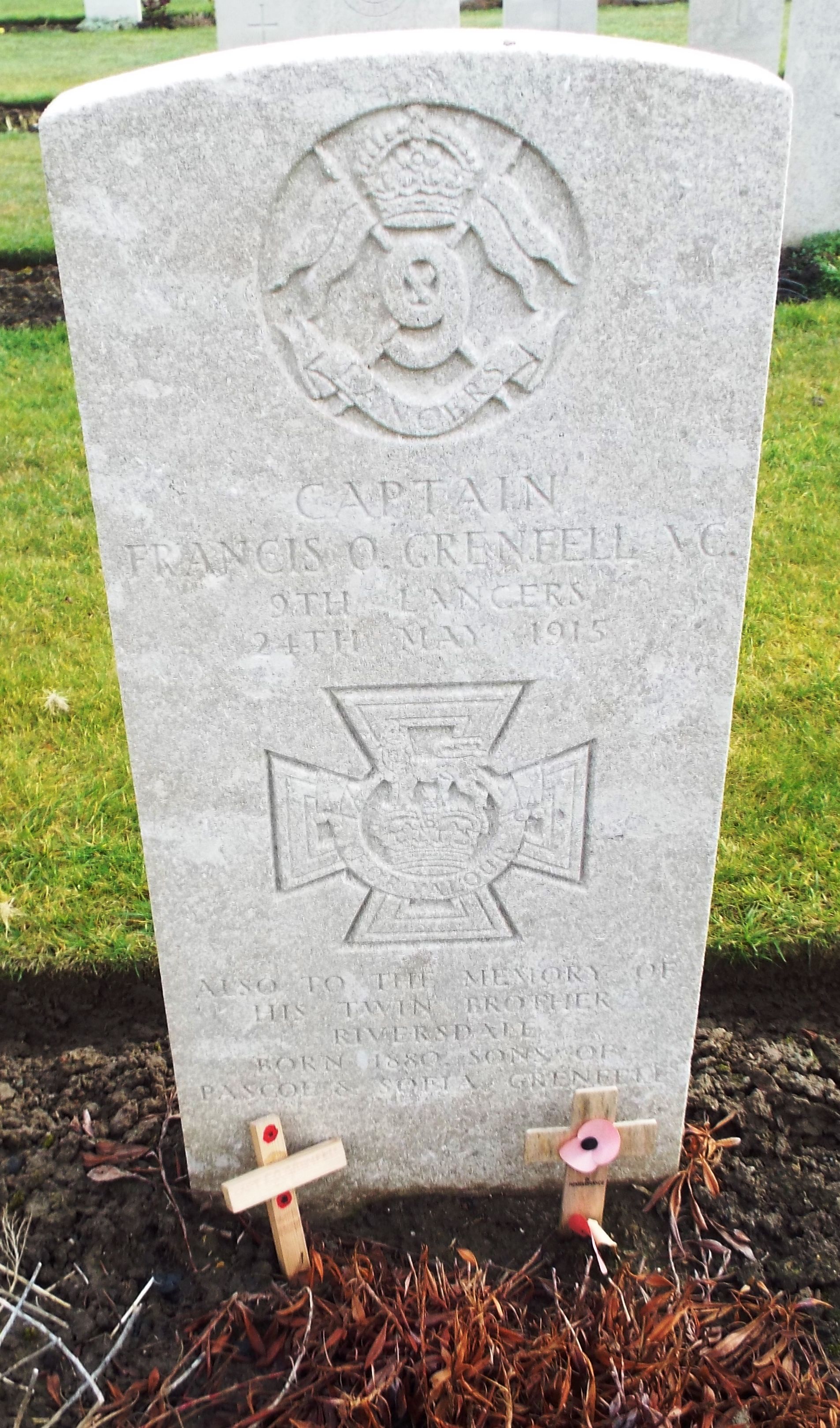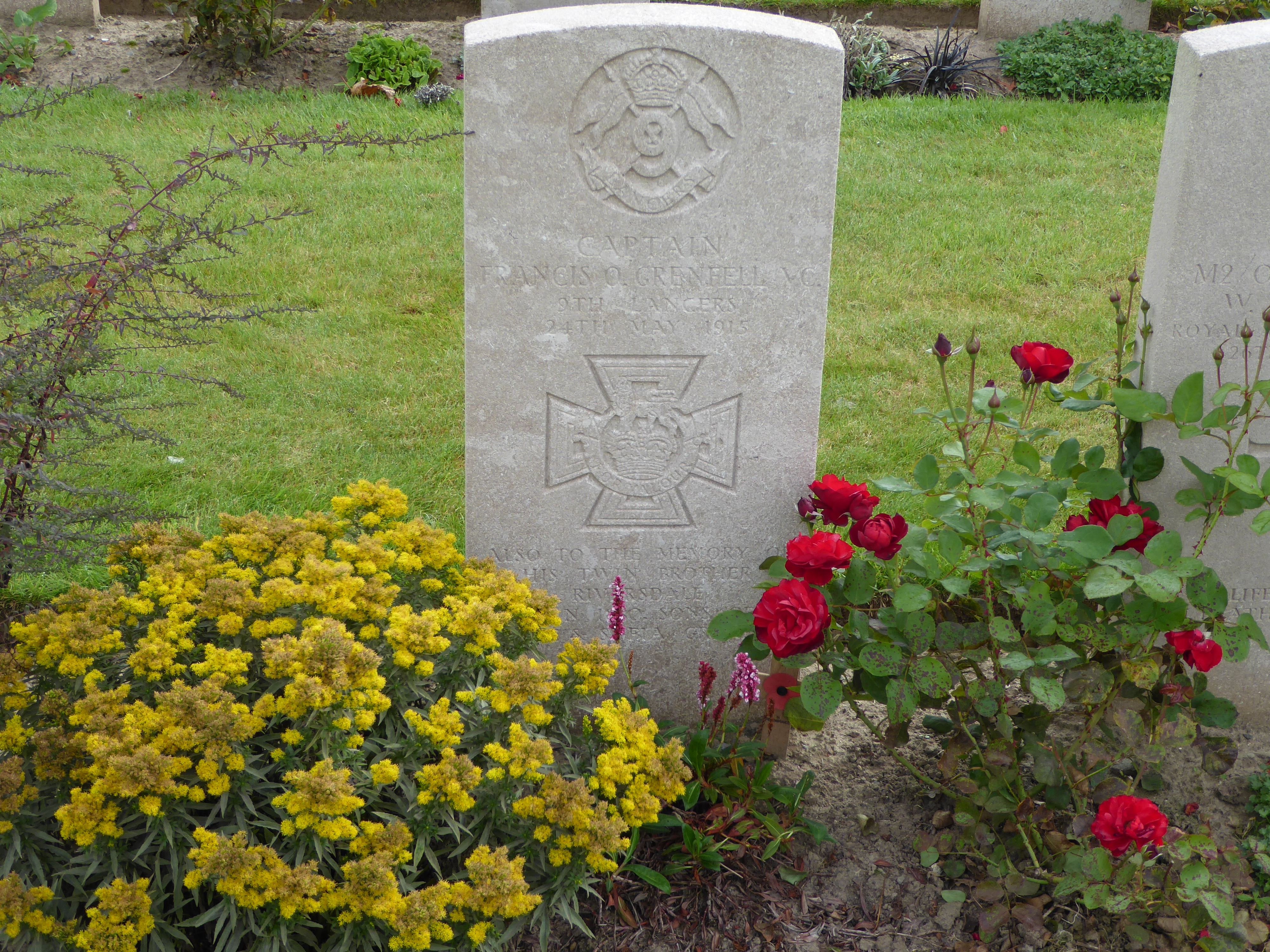Age: 35
Regiment/Service: 9th (Queen's Royal) Lancers
Son of Pascoe Du Pre Grenfell and Sophia, his wife. Educated at Eton, Francis
---
Extract from The Roll of Honour, A Biographical record of all members of His Majesty's Naval and Military Forces who have fallen in the War, by the Marquis de Ruvigny, Volume I., The Standard Art Book Company, Ltd, December, 1916:
GRENFELL, FRANCIS OCTAVIUS, V.C., Captain, 9th Lancers, 8th son of the late Pascoe Du Pre Grenfell, of Wilton Park, Beaconsfield, by his wife, Sophia, daughter of Vice-Admiral John Pascoe Grenfell, Brazilian I.N., and nephew of Francis Wallace, 1st Baron Grenfell, P.C., G.C.B.; G.C.M.G., Field-Marshal; born Hatchlands, Guildford, 4 Sept. 1880; educated Eton (Mr. Durnford's House, 1894-99); received a commission in the 3rd (Militia) Battalion Seaforth Highlanders, 13 Dec. 1899; gazetted 2nd Lieutenant King's Royal Rifle Corps, 4 May, 1901, and Lieutenant 28 Jan. 1905; transferred to 9th Lancers 6 May, 1905; promoted Captain 7 Sept. 1912; was Adjutant 1 Nov. 1912 to 13 Jan. 1914; served (1) in the South African War, 1901-2; took part in operations in Cape Colony and Transvaal, 1901, and in those in Orange River Colony, Jan. to 31 May, 1902 (Queen's medal with five clasps); and (2) with the Expeditionary Force in France and Flanders; was twice mentioned in Despatches [London Gazette, 20 Oct. and 16 Nov. 1914] by F.M. Sir John French, and was killed in action, after being twice wounded at Hooge, 24 May, 1915; unmarried. He was awarded the Victoria Cross "For gallantry in action against unbroken infantry at Audregnies, Belgium, on 24 Aug. 1914, and for gallant conduct in assisting to save the guns of the 119th Battery, R.F.A., near Doubon, the same day," being the first officer to receive it in the European War. At Eton he was in the Cricket XI in 1899, and Master of the Beagles. Like his brother, Captain R. N. Grenfell, he was one of the finest polo players of his day. He did much for modern polo with his brother, was in the Champion side several times, and was instrumental in forming the Old Etonians Polo Team, which at one time was nominated as the Polo Cup Challenger. One of the best known men in the army, he enjoyed a popularity that few men achieve.
Age: 35
Regiment/Service: 9th (Queen's Royal) Lancers
Son of Pascoe Du Pre Grenfell and Sophia, his wife. Educated at Eton, Francis
---
Extract from The Roll of Honour, A Biographical record of all members of His Majesty's Naval and Military Forces who have fallen in the War, by the Marquis de Ruvigny, Volume I., The Standard Art Book Company, Ltd, December, 1916:
GRENFELL, FRANCIS OCTAVIUS, V.C., Captain, 9th Lancers, 8th son of the late Pascoe Du Pre Grenfell, of Wilton Park, Beaconsfield, by his wife, Sophia, daughter of Vice-Admiral John Pascoe Grenfell, Brazilian I.N., and nephew of Francis Wallace, 1st Baron Grenfell, P.C., G.C.B.; G.C.M.G., Field-Marshal; born Hatchlands, Guildford, 4 Sept. 1880; educated Eton (Mr. Durnford's House, 1894-99); received a commission in the 3rd (Militia) Battalion Seaforth Highlanders, 13 Dec. 1899; gazetted 2nd Lieutenant King's Royal Rifle Corps, 4 May, 1901, and Lieutenant 28 Jan. 1905; transferred to 9th Lancers 6 May, 1905; promoted Captain 7 Sept. 1912; was Adjutant 1 Nov. 1912 to 13 Jan. 1914; served (1) in the South African War, 1901-2; took part in operations in Cape Colony and Transvaal, 1901, and in those in Orange River Colony, Jan. to 31 May, 1902 (Queen's medal with five clasps); and (2) with the Expeditionary Force in France and Flanders; was twice mentioned in Despatches [London Gazette, 20 Oct. and 16 Nov. 1914] by F.M. Sir John French, and was killed in action, after being twice wounded at Hooge, 24 May, 1915; unmarried. He was awarded the Victoria Cross "For gallantry in action against unbroken infantry at Audregnies, Belgium, on 24 Aug. 1914, and for gallant conduct in assisting to save the guns of the 119th Battery, R.F.A., near Doubon, the same day," being the first officer to receive it in the European War. At Eton he was in the Cricket XI in 1899, and Master of the Beagles. Like his brother, Captain R. N. Grenfell, he was one of the finest polo players of his day. He did much for modern polo with his brother, was in the Champion side several times, and was instrumental in forming the Old Etonians Polo Team, which at one time was nominated as the Polo Cup Challenger. One of the best known men in the army, he enjoyed a popularity that few men achieve.
Bio by: William Bjornstad
Family Members
Advertisement
See more Grenfell memorials in:
Advertisement












